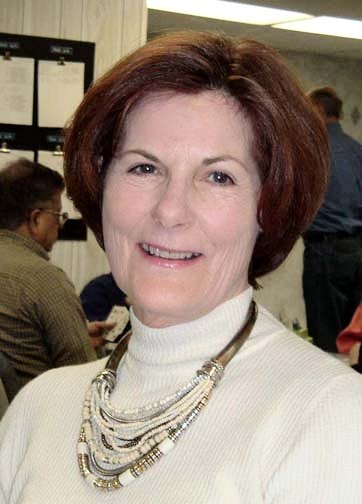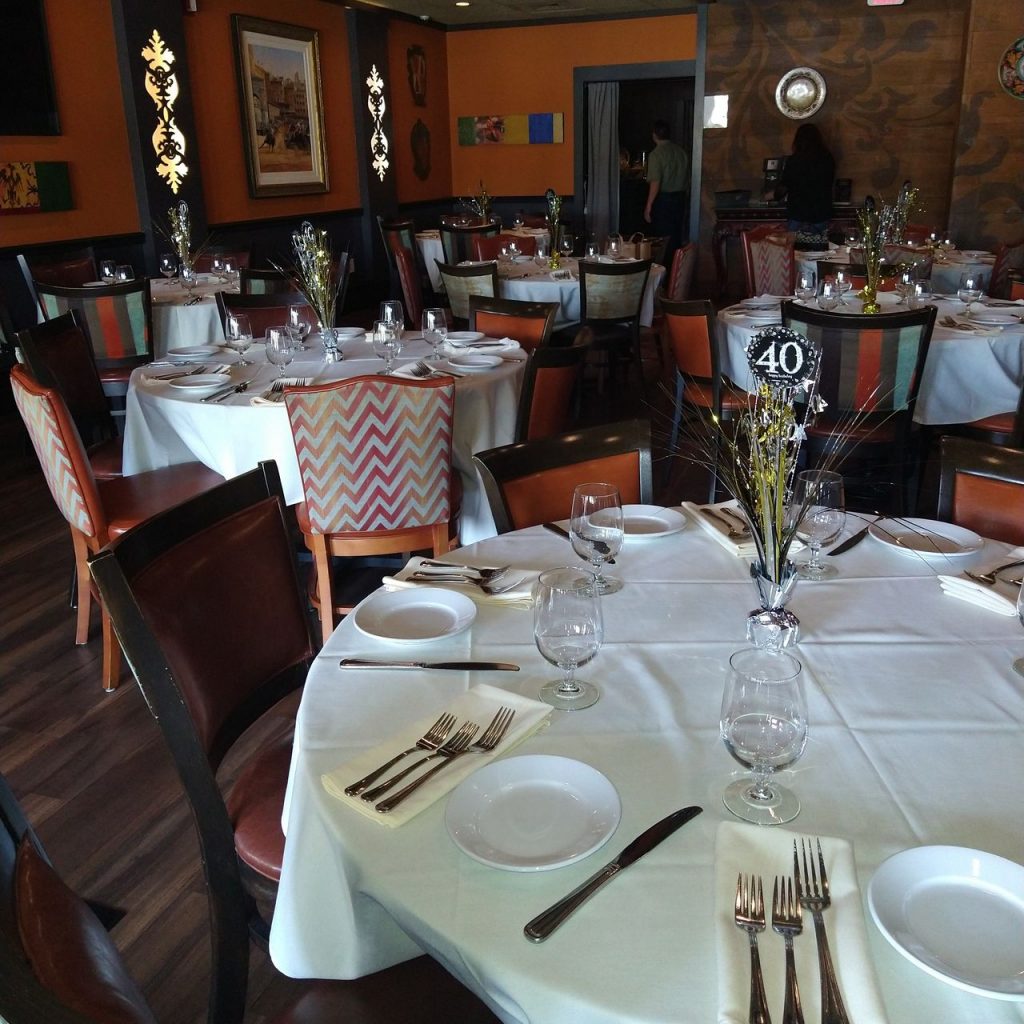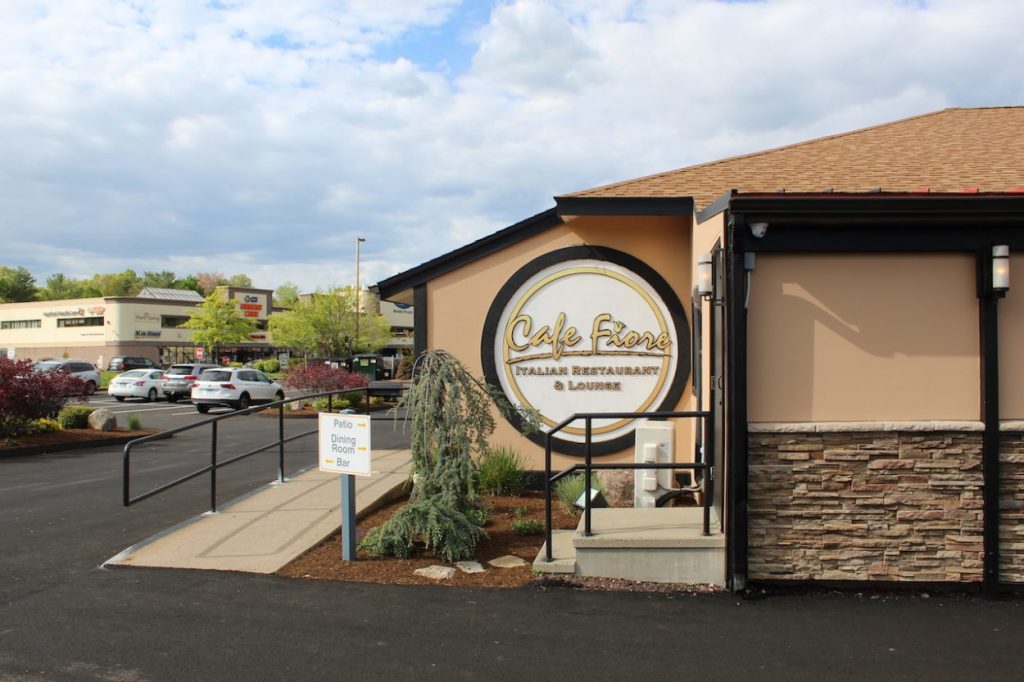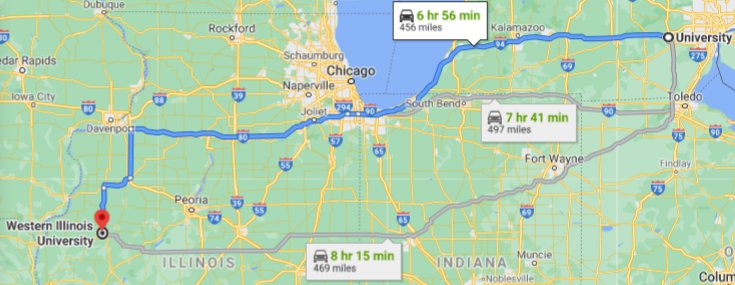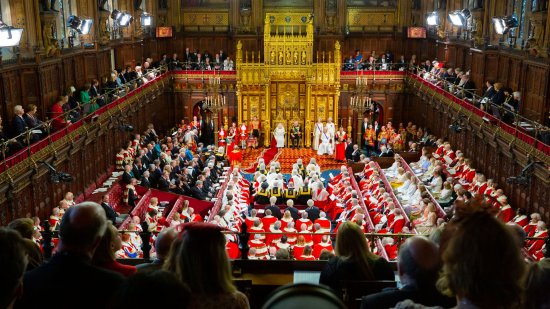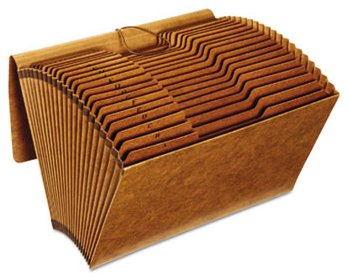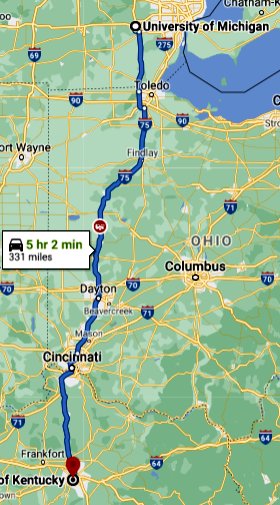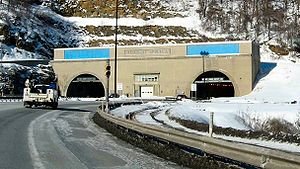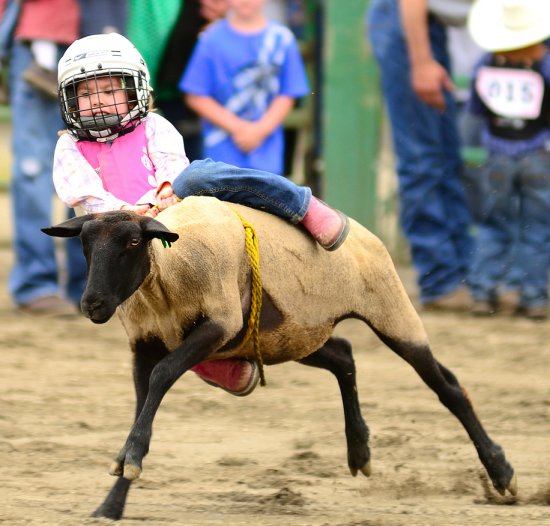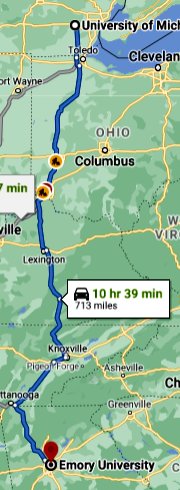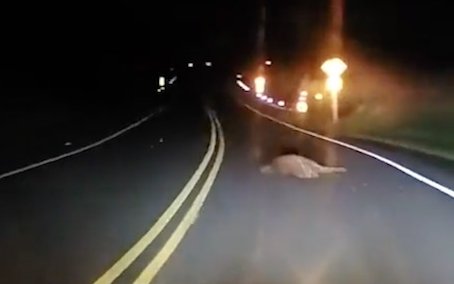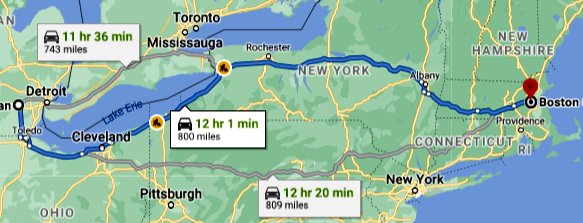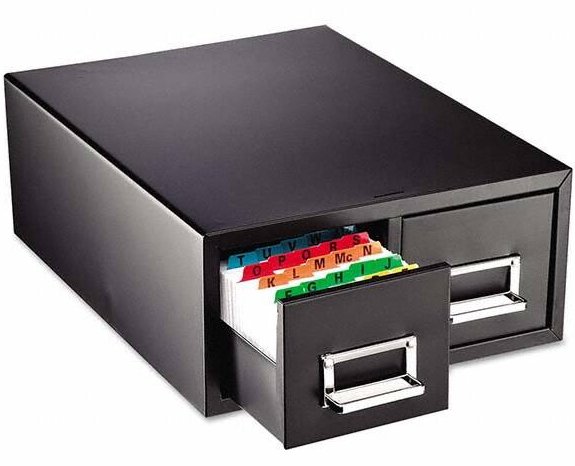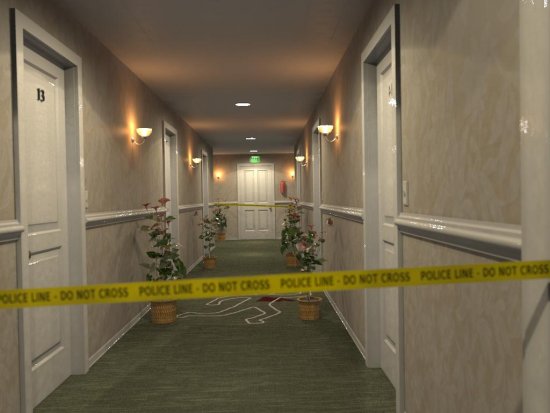Partners at regionals and sectionals. Continue reading
This entry contains information about the partners with whom I played regularly at tournaments before the Pandemic. Many experiences with those people have already been described elsewhere. Part 2, which is posted here, is about partners with whom I played at tournaments only once or twice.
I enjoyed playing in pairs games at the clubs for the first few years when I was still working a very large number of hours. During this period I read the Bridge Bulletin from cover to cover every month and tried to make sense of the dazzling array of tournaments that were being held around the country. When I started playing at the Simsbury Bridge Club (SBC) with Dick Benedict (introduced here), he had already put together a group of people who played in tournaments together. He asked me to join that group, and I was eager to do so.
Partners from the SBC: I am not positive, but I think that the first tournament in which I played was with Dick as my partner in a 299er (restricted to players with less than 300 masterpoints) game in the Knockout Regional at a hotel in Cromwell, CT. That would probably have been in February of 2008. I remember that it was held in a separate room across from the main ballroom. During a break Dick escorted me across the hall to see what the players there were doing. I found the vista stupefying. The place was huge, and it was full of bridge tables. At each one were seated four people, most of whom had huge heads. I have never heard anyone discuss this aspect of bridge, but it was the first thing that I noticed. I felt that this was where I belonged.
The game in the 299er room was run by Sue Miguel. She reminded me of a grade school teacher. She was very proud of the fact that the candy that she offered to her charges contained more chocolate than could be obtained elsewhere. The 299er games seemed rinkiy-dink to me. On the one hand, the games seemed less challenging than the ones at either the Hartford Bridge Club (HBC) or the SBC; on the other I had a hard time understanding what the opponents’ bids meant. After just a few sessions I determined that although I found the concept of tournaments fascinating, I wanted more than the 299er rooms had to offer. In retrospect I must admit that this was probably hubris.
At first Dick’s preferred partner at tournament was Virginia Labbadia. She was, as I recall a retired salesperson for Xerox. I played on a few teams with them. Dick offered to help her make Life Master if she would help him. He was shocked that she turned him down, and so he asked me.
Eventually Dick and I had great success together playing in bracketed team games (knockouts, compact knockouts, and round robins) with Robert Klopp and Brenda Harvey. Many of our adventures have already been described here. Dick already knew Robert and Brenda when we started playing together. He probably had played against them at tournaments.
One of the regulars at the SBC, Sonja Smith2, recommended that her son, Steve Smith,3 try playing with me at the games in Simsbury. Shortly thereafter Dick, who was a Life Master by then, decided he did not want to play with me in Simsbury. Steve and I started playing there and on Tuesday evenings at the HBC. We also attended several memorable tournaments together. Most of those exploits, including our trip to Reno, NV, have already been described here.
One thing that I neglected to mention was that Steve seldom carried any cash with him. More than once I had to pay his table fees for him. Of course he paid me back. Cash to him was an old person’s money.
Steve bought a house in the Forest Park section of Springfield, MA. He rented out his spare bedrooms to other guys. When I drove there to pick him up I never knew what I would encounter. In at least one case I had to wait for him to get dressed.
Nearly all of our car trips to tournaments were interesting. I remember that Steve told me once about an idea that he had for a dating app. He was serious about developing it and marketing it. I thought that he was crazy. I never learned whether anything ever came of it.
Steve and I were both fans of Phil Hendrie, a radio host from Los Angeles, who conducted outrageous and offensive interviews of himself using other voices. After a few minutes he would invite people to call in. Many people did, and the results were hilarious. Phil’s regular listeners never called because they knew that it was a stunt.
Steve and I both occasionally listened to Art Bell on his Coast to Coast AM radio show. Steve once played for me a recording of Phil Hendrie interviewing himself as someone accompanying Art Bell on a mission to find aliens that had landed near Las Vegas.
I also played bridge with Steve’s mother Sonja a few times We were partners once at the SBC and once or twice at the HBC. We also played together for two sessions at the sectional in Orange that was held in June of 2022. That event has been documented here.
I went to quite a few tournaments with Sue Rudd. When we started playing together I was a Life Master and she was not. This was in spite of the fact that she had joined the ACBL seventeen years before I did. I have written extensively about my long relationship with Sue. You can read about many of the experiences here.
Sue stopped paying dues to the ACBL in 2010. She was the only person whom I ever heard complain vociferously about the cost of playing bridge. Then again, she also complained about the cost of gasoline and just about everything else. I suppose that it was difficult for her to manage her expenses on the fixed income that she received as a former employee of the Commonwealth of Massachusetts. On the other hand, one of her sons paid for quite a few foreign vacations for her, and she often mentioned how many famous ski resorts on different continents that she had visited over her lifetime.
Sue still played bridge occasionally at the end of 2023, but I don’t know of any sanctioned games in which she was participating other than occasional appearances at the SBC.
My occasional partnerships with Jerry Hirsch were documented pretty thoroughly here. As of November 2023 he still played with Sally Kirtley nearly every Tuesday morning at the HBC and Wednesday evening at the SBC. His smiling face has not been seen at a tournament for some time before Covid-19 arrived.
My last (as of November 2023) regular partner at the SBC was Ken Leopold. I have recounted some of our many adventures together here. Ken was still working as a physician as of late 2023. Since the Pandemic I have not played with him in any tournaments, although he asked me to play in the 2023 Gala Regional in Marlborough. I had to decline because of a previous commitment to another player. Most of the time he has played with his wife, Lori.
In the fall of 2023 Ken started directing the Saturday afternoon pairs game at the HBC. It was sort of an experiment.
Partners from the HBC: The stories about my partners from the HBC that are recounted here include many recollections about tournament play, as well.
I played with Tom Gerchman at quite a few tournaments, including the NABC in Boston in 2008, at which time I had less than fifty masterpoints. That experience and many others have been documented here.
After I had stopped playing with Gerch I was subjected to one more instance in which I had to sit across from him. Both of us were playing in the Individual Regional Tournament in Newton, MA, in January. In individual events players have different partners for each round. So, in a session of twenty-seven boards they would play with nine different partners. By chance one of my seven was Gerch.
On the first hand he opened 3♦, a preemptive bid that indicated a below average hand with seven diamonds. The player on my right passed. I also passed, which told Tom that I had fewer than three diamonds, and I did not think that we could take ten tricks. The player on my left bid 3♥.
Tom’s first bid had limited his hand. That made me the captain. Nevertheless, he channeled his inner Mister Christian and he bid 4♦. The ONLY excuse for doing this would be if he discovered that he had actually had eight diamonds. He didn’t.
After two passes the player on my left reluctantly bid 4♥. This raised the stakes a lot. Now our opponents might potentially get 620 points for a game contract as opposed to 140 or 170 for the three-level bid. Tom did not hesitate. He took the 5♦ card from his bidding box and set it on the table. The next player immediately doubled, of course.
I really felt like calling the director and asking him/her if I could join the opponents in the double. I had played nothing but pass cards. Now I was going to be the dummy. Why must I be punished for my partner’s reckless and totally unilateral bidding?
Now that I have had time to think about it, I should have redoubled. We were going to get a zero anyway. Why not make Gerch sweat a little more.
In fact, Tom and I ended up getting zeroes on all three hands. This was an astounding result. Of all the pairs playing these three hands—probably at least ten—we did worse than all of them all three times. I am happy to say that that was the last time that I ever had to play across from Gerch.
My first team event was at a regional tournament at the Hilton Hotel in Danbury, CT,4 in the autumn of 2008. Dick and I played together. Our teammates were Virginia and Inge Schuele (ING uh SHOO luh), one of Dick’s regular partners at the club. Our team had a total of less than 600 masterpoints. Our opponents had at least ten times that amount. We got pasted.5
The match lasted all morning. Afterwards the four of us ate lunch in the hotel’s restaurant and discussed what to do in the afternoon. There was a 199er pairs game in the afternoon. Both Inge and I had less than 200 points, and so we could play in it. The fact that we had not played together was not of great import. We used the card that Inge played with Dick, and I adjusted. I seem to remember that Dick and Virginia played in the pairs games for seniors, which at that time was anyone over 60.
After lunch I insisted on finding a quiet place at the hotel so that I could take a short nap. In my working days I always did this.
Our opposition in the 199er event was several steps below the level of our opponents in the knockout. They made many mistakes. When all was said and done Inge and I had a score well over 60 percent, and we were first overall. We were presented with small trophies, and out photos were taken. Our pictures appeared in the next day’s Bulletin for the tournament. This was the only trophy that I ever won in bridge, and it was the only time that my photo appeared in print until the time that my image appeared on the cover of a bridge book written by a Canadian.6
Although I don’t think that I ever paired up with Inge at the HBC, I am positive that we played together at several tournaments. I learned that Inge spoke Italian and in days gone by had conducted tours of parts of Italy. Her husband, Werner (VAIR nair), was a retired airline pilot who flew for Lufthansa.
I vividly remember one hand that Inge and I played together in Sturbridge, MA. It might have been at the qualifier of the North American Pairs that was held there every year. Inge had opened 1♣. I had four clubs, but my primary responsibility was to bid a four-card major (hearts or spades). She rebid her clubs, and the opponents then entered the auction. I used the principles of Losing Trick Count7 (LTC) to determine that we could probably make 5♣, and that was what I bid. Sure enough, she was able to win the requisite eleven tricks, and there was no chance for a twelfth.
LTC does not always work, but it is a good tool for estimating the total number of tricks you probably can take in a suit contract. Inge had never heard of this technique, but she later told me that Werner, who also played bridge, had heard of it and used it.
Inge has not played in a tournament since 2018, and she stopped paying dues to the ACBL in 2022, at which time she had reached the rank of Bronze Life Master. I have not seen her at the HBC since the reopening in 2021, but she might still play elsewhere.
I must close this section with a startling fact. My wife Sue told me more than once that she had been jealous of Inge and had worried that I would run off to Italy with her.
Shortly after I stopped playing with Tom Gerchman I asked Michael Dworetsky to be my partner on Tuesday evenings at the HBC. After that he sometimes worked me in when his regular partner was not available. However, we did play quite a bit in tournaments. The most memorable of those occasions have been documented here.
I recently discovered that Michael won the Barb Shaw trophy in 2011. It was annually awarded to the Flight C player who earned the most masterpoints at a designated sectional in Connecticut. The CTBridge.org website misspelled his last name, capitalizing the W and leaving off the D. I told the webmaster about the mistake a month ago, but a month or so has now passed, and it had not been rectified.
The tournament took place from March 4 through March 11 in 2011. I played with Michael all three days. We had a terrific tournament. On Friday afternoon we finished second in C in the open pairs. On Saturday morning we finished second in C in the B/C pairs. In the afternoon we won the B/C pairs, outscoring the other twenty-five teams. In the B/C Sunday Swiss we teamed up with Tom Gerchman and Linda Starr and finished first in a field of eighteen teams. All told, we won 11.49 points, which was more than all but eleven players at the tournament. All of them had a lot more experience and masterpoints than I did. I was not eligible for the trophy because I was already a Life Master, and so Michael got to keep it for a year.
The most dramatic moment that I ever experienced in bridge was when I was playing in a Swiss event with Michael as my partner. Our opponents were Jade Barrett, a professional from South Dakota, and a female client. Our teammates were Bob and Shirley Derrah, who in that match were playing against two experts from Connecticut.
The match was fairly tight until the last hand, which had remarkable distribution. Michael and I had a lot of hearts. Our opponents had spades. We bid to 4♥. The client bid 4♠.. Eventually Michael bid 6♥., and she bid 6♠.. Michael passed. I had a void in a side suit that I had not mentioned and the ♠A. I was pretty sure that, if all of the suits were distributed as seemed apparent from the bidding, that our side could take thirteen tricks as long as hearts were trumps. So, I bid 7♥., and she doubled.
Michael had to play it very carefully, but every suit was as I expected. He managed to get all thirteen tricks. At the other table our counterparts stopped at 6♥., and the Derrahs did not double. The swing was large enough for us to claim a victory in the match. It was a huge upset. What made this very special was the fact that it was not a fluke. I used what I knew from the bidding and rightly determined that we could take all the tricks.
While researching the 2016 NABC I discovered that Michael and I had played together in that tournament in two bracketed Round Robins. In the first one we teamed up with a couple from New Jersey and won our bracket. In the second one we played with the Derrahs and finished third.
Michael and his wife Ellen moved to Palm Beach Gardens, FL. Michael still seems to play a lot of bridge. He even made it back to New England for the Granite State Regional in Nashua in 2023. I also saw him at an event in Auburn, MA, shortly before the Pandemic.
Dave Landsberg was not my best partner, but he was my favorite. I liked him a lot, and I admired him. Our adventures together have been chronicled here. Included there are the few times that I played with Pat Fliakos. I met both of them in the Tuesday evening games at the HBC.
On the last day of the Fall NABC in Providence in 2014 I played with Dave in bracket #7 of the RIBA Bracketed B teams event. The previous day the team that we were both on had narrowly won a similar event that is described here. On that occasion we were just teammates. On the last day we played as partners; our teammates were Felix Springer and Ken Leopold. This event was not nearly as close. What I remember most about it was that Felix and Ken filed two protests of director’s decisions, and both were rejected. That score of 114 is astoundingly high, much higher than the scores of winners of any of the other brackets.
I played with Felix Springer at many tournaments. Most often he was a teammate, but we also were partners quite a few times, especially at NABC events. Felix had played at high-level events when he was at Columbia, and he developed the same taste for national competition that I had. Our most successful pairing was for the 0-1500 Mini-Spingold in Washington that is described in the Paul Burnham section.
In the autumn of 2019 we played in the NABC in San Francisco. For some reason I did not keep notes for this tournament. So, I must rely on my memory.
Our primary objective was to do well in the Super Seniors pairs and the Mini-Blue Ribbon pairs. We came very close to making it to the second day in each, but we fell just short of both of those goals. However, we did finish fifth in the Saturday BC pairs and the Thursday BC pairs. We also teamed up with Bob Sagor and Judy Hyde to finish a very close second in bracket #1 of the Wednesday bracketed teams. All told, we won 26.23 gold points together.
When I arrived at the airport it was late in the evening, and I was very sleepy. I was tricked into using a credit card skimmer that was attached to the machine that sold BART tickets. I had to cancel the card, but I did not lose any money.
The tournament was the last NABC in which NABC events like the two that we played in were scheduled for afternoon and evening as opposed to morning and afternoon. I had great difficulty maintaining my concentration in the evening sessions. I consumed a lot of coffee. There were no concessions in the basement in the evenings. When I needed a coffee I had to race up the escalators to the first floor.
I remember several ancillary details about the tournament. The games were in the basement of one of the two Marriott hotels. One morning while I was taking the escalator down to the playing area my Goodwill Committee pin fell off and landed pin-side down between two metal bars on the step in front of me. I had a coffee cup in one hand and papers in the other. I tried to reach down to save it, but I was unable to grasp it before it disappeared into the bottom of the escalator. Felix and I walked both stayed in the Marriott across from Union Square. At the time I was still bothered by foot pain after a half mile or so.
Felix gave me a bottle of wine that he had won by winning a section in an evening side game. I saved the bottle as a souvenir. He also let me share his Uber ride back to the airport. Our driver was from Sao Paulo, Brazil.
Tournament partners from outside of the Hartford area: I played a lot more tournament bridge than most of of my partners at the HBC and SBC. Listed in this section are the people with whom I had more than a passing relationship. That is, I played with them for more than one or two sessions, and we spent some time making sure that we agreed on our methods.
I met Ginny Iannini in 2013. At the time she was playing with her wheelchair-bound husband, Bill King, in some of the same events in which I participated. They won the Gold Rush Swiss in the Knockout Regional in Cromwell, CT, in February of 2014. This was the first tournament at which I launched my program of taking photos of the winners of events and posting them on the NEBridge.org website. I dutifully took the photo8 of their team with my point-and-shoot Canon camera.
Only one other winning team came to see me for a photo in that entire tournament. It made me realize that I would need to hunt down the winning pairs and teams and beg them to let me snap a photo of them. That meant that this project would entail much more work than anticipated, but I was committed to do it, and I committed to doing it for eight years.
I enjoyed working and playing with Ginny. After her husband’s death she became pretty devoted to bridge. She lived in Brewster, MA, which is on Cape Cod. She took bridge lessons there from a very fine player, Steve Rzewski..9 I learned the Blooman convention from her, as well as Spiral (which we called Q&Q, short for quantity and quality).
At one point Ginny asked me in an email if I was married. I pointed her to an abbreviated form of the journal that I had kept of one of our Larry Cohen cruises, entitled “Honeymoon for One.” The whole journal is posted here. She occasionally talked about her problems with her first husband, a doctor as I remember. She made it clear that she took him to the cleaners when they got divorced. She also told me about a dentist whom she had been dating while we were playing together.
In those early years Ginny was pretty active in the administration of bridge in New England. She was elected to the Board of Directors for the Eastern Massachusetts Bridge Association (EMBA), she was a member of the Tournament Scheduling Committee, and she was the tournament chairman of the Senior Regional on Cape Cod at least once. The very first email that I sent out in support of a regional tournament was that one.
Ginny and I did pretty well together. We won numerous events, including one at the NABC in Providence in 2014. My original write-up of the most exciting and nerve-wracking event of my bridge career was lost in the catastrophic computer crash of 2015. I will need to try to recreate it from memory. We were playing in bracket #6 of the Mary Carter Bracket B Swiss on Saturday, December 6, 2014. Our teammates were Dave Landsberg and Pat Fliakos. We were doing well throughout the event, but a team of players from the Montreal area was only a little behind us when we played against them in the last round.
Ginny and I were playing against two ladies. Dave and Pat faced two men. The match seemed to come down to one critical hand. Ginny opened the bidding and then reversed, showing a strong hand with at least seventeen high-card points. She had that, but barely, and some of her holdings were a little shaky. She had no aces. We ended up a slam that I had to play, and I was unable to find a way to make it. When the last hand had been played, we were crestfallen as we walked to the other table to compare scores with Dave and Pat.
It was as we feared. Our counterparts had stopped in game and easily made their contract. That swing offset some small positives that we amassed on other hands. We clearly lost the match. However, because of the lead we had coming into the match, we still would be ahead by two victory points. The captain of the Quebecois team brought the tabulation card to our table for confirmation, but he claimed a significantly larger margin of victory than we had calculated. I walked with him back to their table and discovered that the ladies had made a mistake, and we did indeed win by two victory points. To put that in perspective, the two teams that tied for third were 29 points behind the Canadians. Furthermore, their score would have won any other bracket.
I always enjoyed playing with Ginny. I think that I might have been too intense or too ambitious for her. She never officially dumped me, but she stopped accepting my invitations, and eventually I got the message. Another factor was that after she remarried, she played a lot less bridge. She still seemed to be playing somewhere in 2023, but she has not attended any tournaments since 2019.
I did receive an email from her when I solicited nominations for the Weiss-Bertoni award (described here). She was the first person to nominate Joe Brouillard, the eventual winner.
We enjoyed several suppers together during tournaments. I remember a few distinctly. The first was at Siena, a very nice restaurant in East Greenwich, RI. Bob Bertoni, who was the D25 president at the time, was in attendance, as well as several people from the Boston area. Two of them were quite drunk. Ginny found it curious, but I found it unpleasant.
We also ate at a restaurant called Il Forno in Providence with people from the Cape whom Ginny knew and had arranged to be our teammates. The woman was named Ginny O’Toole. I have forgotten the guy’s name. That was another rather strange occasion.
We ate at least twice at Cafe Fiore, a restaurant in Cromwell, CT, near the hotel that hosted the regional tournament there for many years. On the last of those occasions I disclosed my idea for a novel about Pope Benedict IX (posted here). She had a strange and disturbing reaction: “You want to be the pope!”
I once made the mistake of admitting that when I first met Ginny I had considered her likely to be “high maintenance.” However, after I got to know her I judged that my initial judgment had been wrong. I considered this admission as a compliment to her, but I think that she was at least slightly offended.
Ginny was very active in fundraising for the preservation and/or restoration of a historical piece of property on Cape Cod. I think that it was a captain’s residence or something like that. I never learned what happened to that project.
Ginny was tall and thin. Opponents often thought that we were married. Her fingers were preternaturally long. Her span was almost a match for mine, and the span of my left hand is eleven inches.
I was astounded to learn that Ginny was ten months older than I was. She certainly did not look it. She kept in shape by doing yoga. The last thing that I remembered her saying to me was that from that point on she would always wear yoga pants to tournaments. I haven’t seen her in several years, and I definitely miss her.
Paul Burnham was a lawyer who lived and worked in the town of Wilton, CT, a long way from Hartford. Nevertheless, he has recently been a member in good standing of the HBC. He hardly ever makes the drive to play in anything except special games. I know that our first time as teammates was in the 0-1500 Mini-Spingold in Washington, DC, in the summer of 2016. I somehow set Paul up to play with Charlie Curley from the Boston area while I played with Felix Springer. We made it to the semifinals of this event. The last match was the first and only time that I played with screens. It made me quite nervous because my handwriting had already deteriorated somewhat, and my notes to my screenmate were difficult to read.
At some point Paul and I committed to play as partners in a tournament. In preparation I drove to a town in southeastern Connecticut where there was a club game that Paul frequented. The competition was tough, and we were not used to each other’s styles. We did not win any points.
I also played in an open pairs game with Paul either at that tournament or at a subsequent NABC tournament in Toronto. I used the Flannery convention, but Paul was unaware that it was on our card.
I also played with Paul for three days at the summer NABC in Providence in 2022. For some reason we were not able to click on that occasion either. The story of that experience begins here.
I am not sure why Paul and I have had so little success as a partnership. It would seem to me that are styles are compatible. I like to play with him, and I hope to get another chance to do so.
I don’t remember how I met Jeanne Martin, who lived in the Worcester area. Her husband was an expert player who died several years before I met her.
Perhaps we were set up by the partnership desk at some tournament in the late teens. We played together at several tournaments. I remember that we were in a team event in Mansfield, MA, and she finally appeared about ten minutes after the first round was scheduled to start. She said that her car’s GPS gave her instructions that sent her in circles. In the age of Google Maps it astounded me that she used a built-in GPS in her car rather than the one that comes free with every cellphone and is supported and maintained by Google.
We did not win any events together, but we both seemed to enjoy playing together. I drove up to Auburn, MA, which was the site of the sectionals and unit-wide games for the Central Massachusetts Bridge Association (CMBA). Our results seemed to get worse over time.
Jeanne once appeared in a cameo role in a feature-length move. She was in an ice cream parlor. She sent me a file that contained a video of the scene.
Before the Pandemic Jeanne was on the board of directors for unit 113 (CMBA). She told me that she did not get along with some of the other board members and wanted to resign.
Jeanne attended the 2022 Gala Regional in Marlborough, MA, but she did not win any points. She still seemed to be playing bridge online or somewhere in 2023.

I played with Bob Sagor at tournaments in Nashua, NH. He lived in Greenfield, MA, which is on I-91 near the Vermont state. His principal partner was Judy Hyde. They often played together at events sponsored by the Northampton Bridge Club and at tournaments. He sometimes played with me when Judy was not available.
I do not have many specific memories of the bridge games that I played with Bob. Since I had also played with Judy, it was rather easy for us to agree on a card. I vividly remember that on one occasion I was complaining something stupid that one of my partners (maybe my wife Sue) had done. Bob asked me wryly, “Am I better of worse than them?” I said that I needed more time to think about it.
Like nearly all bridge players Bob had an interesting backstory. He was a couple of years older than I was, which meant that the draft was a big factor when he finished college. He and his wife Claire moved to Nova Scotia to avoid it, and they only returned when its avoidance was no longer considered a crime. In real life he was a veterinarian.
During the Pandemic Bob was diagnosed with Parkinson’s. When the bridge world reopened in 2021 he was unable to participate in live events. However, he still was very active in online play, especially with the Noho Club. An article about Bob’s involvement with bridge in western Massachusetts that was printed in the Greenfield Recorder in June of 2023 has been posted here.
I was assigned by the partnership desk to play with Sohail Hasan in the open pairs game on Thursday, November 7, 2019, at the Harvest Regional in Mansfield, MA. We hit it off pretty well. We finished eleventh overall out of fifty pairs and fifth in the B strat. The conventions that we played were quite similar. His approach to 2NT responses was much more sophisticated than what I was accustomed to. Unfortunately, we later came to understand that we had substantial disagreements about what some of the entries on our convention card meant.
I learned that Sohail had graduated from the University of Wisconsin and had been employed at a Wall Street firm (LinkedIn page here). He had a house on Cape Cod and another in New York or New Jersey. Most of his acquaintances in the bridge world seemed to come from NYC or New Jersey.
During the Pandemic Sohail asked me if I wanted to play in the NABC in the summer of 2022 in Providence, RI. I agreed to play with him in two team games in which we did pretty well. Unfortunately, our teammates in that last event contracted Covid-19 and had to drive home early. So, on the last day we played in the fast pairs, and I had a miserable time. The details of these adventures have been recounted here.
Over the rest of the summer Sohail and I maintained email communications. We committed to play together in the Ocean State Regional in Warwick, RI. I have explored here the miserable time that I had at what had always been my favorite tournament. I encountered several problems with Sohail. He has a fiery temper, and he unleashed it several times at me and once in even greater fury at a pro that he knew from the New York area. He insisted that the XYZ convention did not apply when the participants bid 1x-1y-1NT. I found this preposterous. He pointed me to an article by Larry Cohen that advocated playing New Minor Forcing in that situation. I replied that LC was an outlier in this regard. Furthermore, the name of the convention was derived from the fact that it could be used in any sequence of three calls that ended with a bid at the one level: most commonly 1x-1y-1z.
The biggest problems began with the fact that he played BOSTON (Bottom Of Something ; Top of Nothing) leads, but he refused to mark them on his convention card, and if anyone asked what he played, he always answered “Standard”, which was not true. He also showed up at the very last minute (or later) for every. This bothered me a lot because I wanted to make sure that we were on the same page about everything, and we played some conventions that were new to me. Finally, he had a peculiar overhand style to playing his cards, which resulted in him sometimes slamming them on the table. When others objected to this technique, he sometimes responded with unnecessary aggression.
In short, I decided after the Warwick debacle not to play with Sohail again. He has attended two NABC events since then, but no D25 tournaments.
The adventures at tournaments that involved partners with whom I played only once or twice are posted here. The new partners with whom I have played since the renaissance of bridge after the Pandemic are described here.
1. Virginia Labbadia is not in my database of ACBL members, which means that she stopped paying dues before I started downloading rosters in 2014. She definitely played at the HBC rather regularly before the Pandemic. I have no way of discovering if she ever made Life Master.
2. Sonja Smith and her husband Chris moved to Chapel Hill, NC, in 2022.
3. Steve was still a member of the ACBL in late 2023, but he only had 122 masterpoints, most of which he won with me more than ten years earlier.
4. Although Danbury is definitely part of New England and therefore in District 25, the tournament there was sponsored by District 3 (northern New Jersey and eastern New York). D25 had reportedly tried to use the site for a regional at least once, but the attendance was not good. Before the Pandemic D3 paid D25 a small sum for the right to use the site. I think that the hotel is now called Zero Degrees. D3 has not used it since the reopening.
5. What I most remember from this match was the fact that the opposition used the 2♦ bid to show a hand with 11-15 masterpoints, a singleton or void, and at least four cards in the other three suits. This hand is difficult to bid with standard methods. I remember spending hours going over hand records that I had collected and projected how I would bid hands with that distribution with or without the Mini-Roman convention. I intended to collect enough evidence to convince Dick to use it. However, my research did not disclose that it had much, if any, value. One of the best defenses is just to pass. The players who used Mini-Roman often ended up one level two high.
6. The book is called Winning at Matchpoints, and the author is named Bill Treble. I use the photo (which was taken at the NABC in Honolulu in 2017) to demonstrate my game face at the bridge table.
7. Losing Trick Count is explained here and elsewhere on the Internet and in print.
8. The photo that I took, which had an embarrassing smudge on it, has apparently been lost forever. I think that the original was on an external hard drive for which I have no power cord. The photo that was posted was lost in the catastrophic computer event on NEBridge.org in 2015.
9. Steve Rzewski won the Larry Weiss award in 2010. I also dealt with Steve when I asked the experts in the district if they could supply articles for the NEBridge.org. He was a regular contributor.


